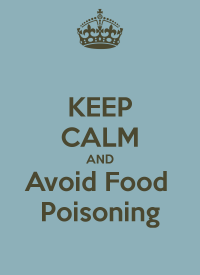News and Notes from The Johnson Center
Protect Yourself While Eating Out
JCCHD | Wed, October 01, 2014 | [Family and Food][Healthcare]Have you ever had food poisoning? If so, you would probably do anything to avoid getting it again. Here are some tips on safely navigating eating out at restaurants:

Does your food look funny? Smell funny? It should smell appetizing and make you want to dive in. If it smells questionable, don’t doubt yourself…send it back.
Don’t order fish at the beginning of the week. Often Saturday night fish specials will be kept until Monday if they don’t sell out.
Be your own inspector. Take a close look at your meat or poultry to make sure it is as thoroughly cooked as you would like it to be.
Ask the waiter what the most popular dishes are. More popular items have less chance of hanging out in the restaurant refrigerator. Specials may be “dressed up” items that didn’t sell as expected.
Know your A, B, C’s. Many health departments post a restaurant grade at the restaurant or check the health department website for a restaurant grade before you make the trek out.
If you question your restaurant at all, visit the restroom and see if it is well cared for. If not, peek in the kitchen if you can—if you spot cleanliness issues, you may rethink your choice and leave before you place your order.
A loud, busy restaurant is a good sign. If your choice is void of customers, the wait staff is standing around, and you notice the neighboring restaurants are bustling with guests, it may be a sign to move on.
Ah, the buffet. So many choices of bacteria growing on the lukewarm setting. Is it worth the risk? While it doesn’t need heating, the salad bar is its own buffet of bacteria and is often a good idea to pass up. Avoid the buckets of salad dressings and sauces and ask if they have individual packets for take-out. These rules also apply to the neighborhood pot luck or picnic where food is not kept at appropriate temperatures.
Stuffed? Take the leftovers in a doggy bag, but be sure to refrigerate it within two hours. If the car is hot [90 degrees or more] get it in the fridge within one hour. If you forgot that delicious meal and find the leftovers the next day—well, best not to take the gamble. If it looks odd or smells funny, toss it.
If you do get food poisoning, alert your dining companions. They will appreciate the heads-up. If you feel like you can pinpoint the contaminated food source, be sure to call the store or restaurant and let them know.
A little extra caution can go a long way. So stay alert and bon appétit!



